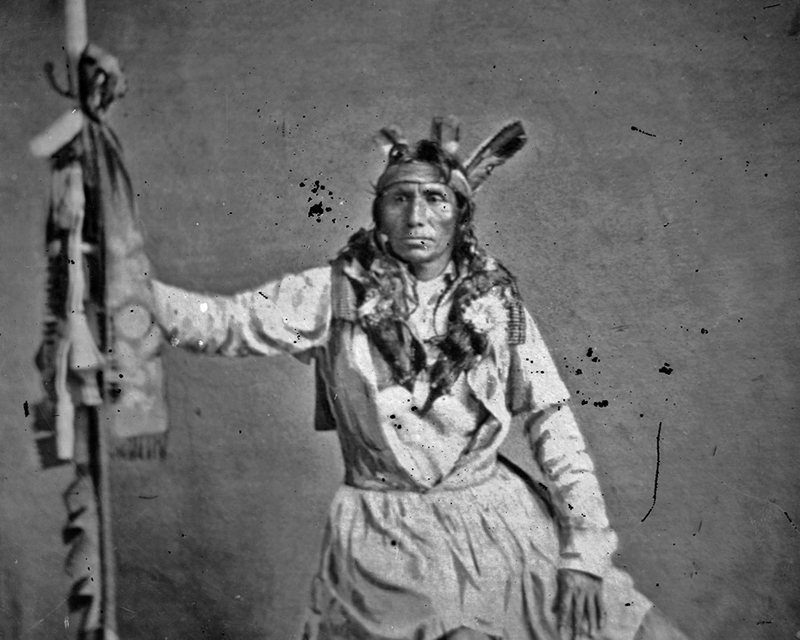In a series of treaties between 1837 and 1858, the Dakota Sioux in Minnesota were forced to cede all their lands. They were confined to a small reservation on either side of the Minnesota River, where whites encouraged them to be farmers. A crop failure in 1861 led to widespread hunger among the people. Federal Indian agents were late with the annuity payments that would have allowed them to buy food, and traders refused to extend them credit.
During the summer of 1862, conditions worsened. The young men favored an uprising, convinced that the American Civil War would distract the U.S. government from responding. Dakota chief Taoyateduta, or Little Crow (c. 1810–1863), knew the uprising was futile, but he nonetheless agreed to lead the men. This is the speech he delivered to the warriors, as recorded by his son.
Though initially successful, the Sioux Uprising was finally put down by an army of volunteers, and the insurgents were tried by a military tribunal. Trials lasted as little as five minutes. The tribunal sentenced 303 Sioux to death.
President Lincoln intervened and assigned clerks to review all the tribunal proceedings. Ultimately, thirty-eight were sentenced to hang. On the day after Christmas 1862, they were hanged in the largest mass execution in U.S. history. Though Little Crow escaped capture at the end of the uprising, he was shot and killed by a farmer on July 3, 1863. The Sioux Uprising became known as Little Crow’s War









































































































































































































